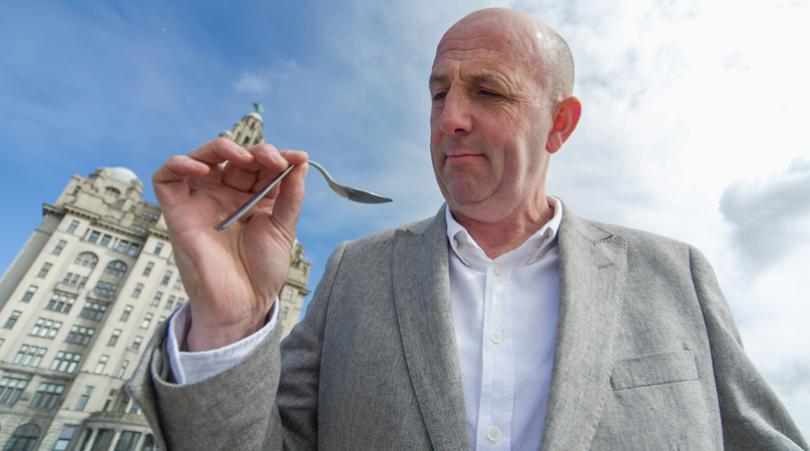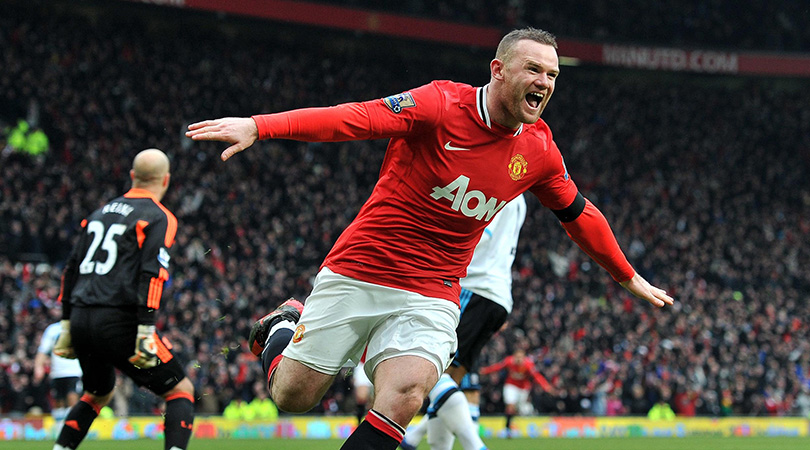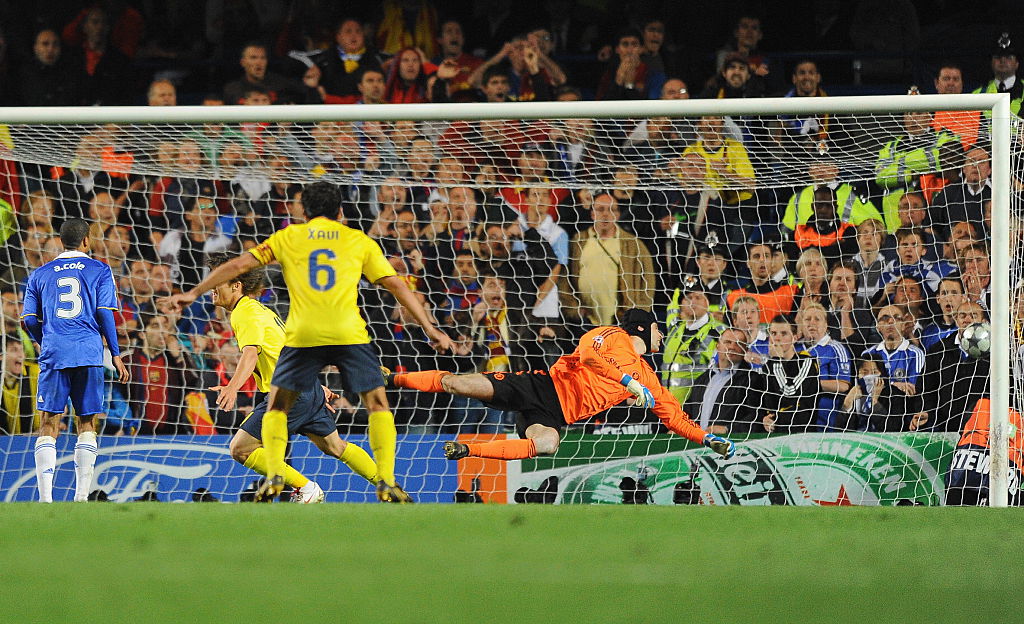7 Premier League veterans who defied age to dominate in the top flight
With Glenn Murray in the form of his life aged 35, Alex Hess takes a look at other players who continued to shine in the autumn of their careers
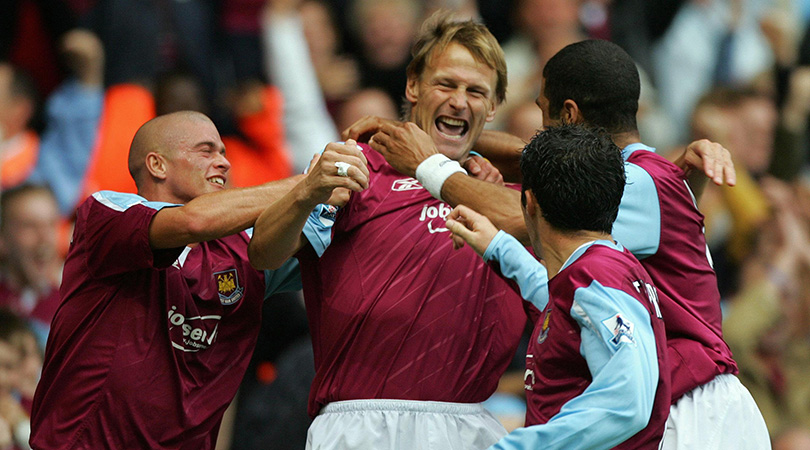
In the new FourFourTwo! Brighton's star striker keeps getting better with age. But can the Cumbrian complete his rise from bottom to top by convincing Gareth Southgate to hand him an England cap?
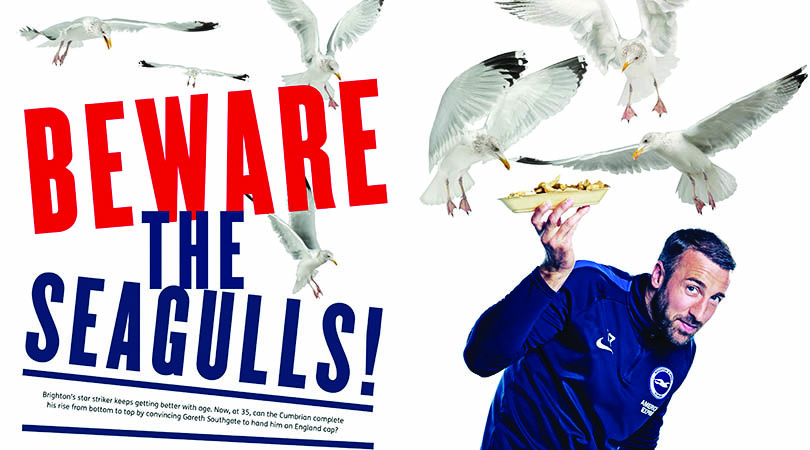
1. Teddy Sheringham
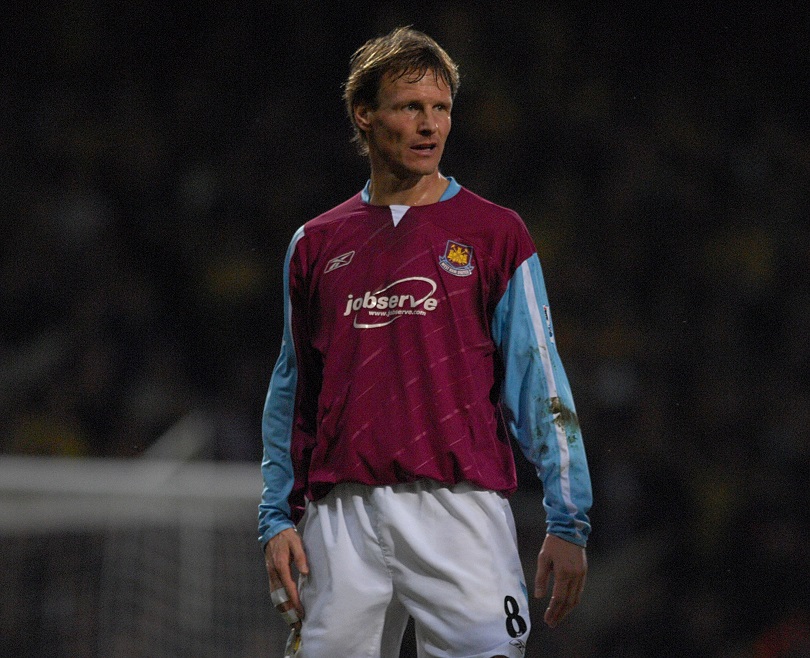
A flamboyant scamp and noted enjoyer of The Good Life throughout the prosperous '90s, it was all the more enjoyable when Sheringham used the latter half of his career to transform himself into a model of twinkly-eyed sophistication. As watchable a footballer as England has ever produced, he is the player for whom that classic adage was invented – and he duly clocked up more yards in his head than most do with their feet.
Sheringham was hardly a late bloomer – he made his Millwall debut at 16 – and yet his career only really picked up speed as it approached the two-decade mark. Having distinguished himself at Nottingham Forest and then Tottenham, Sheringham’s route to the top didn’t meet completion until he was signed by Manchester United, aged 31, to replace Eric Cantona (who, to put things in some sort of perspective, had just retired altogether at the very same age).
Four seasons at Old Trafford produced year-on-year improvement in his game, as well as an invaluable role in that epochal treble-winning side: mission accomplished for a player whose talent had hitherto not been vindicated with a medal. Aged 35 and a classier player than ever, he returned for a second cheery spell at White Hart Lane, manfully suppressing any managerial distate to notch double figures in both seasons and forge a tidy partnership with a young whippersnapper named Robbie Keane.
And still there was mileage. There followed a stint at Portsmouth, where his unshowy elegance quickly made him popular and useful in equal measure. Sheringham was last spotted in the Premier League pinging passes towards a dubiously acquired Carlos Tevez as West Ham clawed their way to top-flight safety – and onto Neil Warnock’s eternal (and lengthy) blacklist – in the spring of 2007.
2. Gary McAllister
Get FourFourTwo Newsletter
The best features, fun and footballing quizzes, straight to your inbox every week.
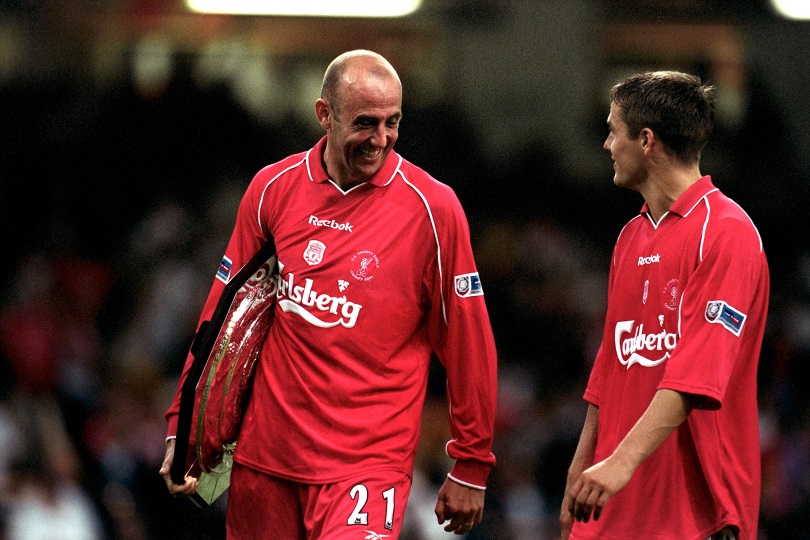
A dependable player for the entirety of his career, McAllister makes it onto the list by dint of a spell at Liverpool that was the dictionary definition of an Indian summer. McAllister had helped Leeds win the league in 1992 as part of an all-Scottish engine room duo alongside Gordon Strachan, but his subsequent career had largely been spent scrambling around lower-mid-table with Coventry. His most high-profile moment was a costly (Uri Geller-inflicted, apparently) missed penalty in Euro '96.
When Gerard Houllier brought the Scot to Anfield as a 35-year-old in the summer of 2000, most thought a bit-part role – maybe even an eventual coaching one – was his reasoning. As it was, McAllister’s composed puppeteering from the heart of midfield was the driving force behind a three-trophy season, not to mention the most feted Merseyside derby goal of the modern era.
His influence outlasted his stay, too. “On away trips I timed my run to the bus so I could sit next to McAllister, absorbing advice,” a certain Steven Gerrard – who admitted he'd wondered why the Reds had bought him in the first place – wrote in 2006. “Every journey was like a lesson, with me an awestruck pupil. A masterclass on legs.” Phwoar.
3. Gareth Barry
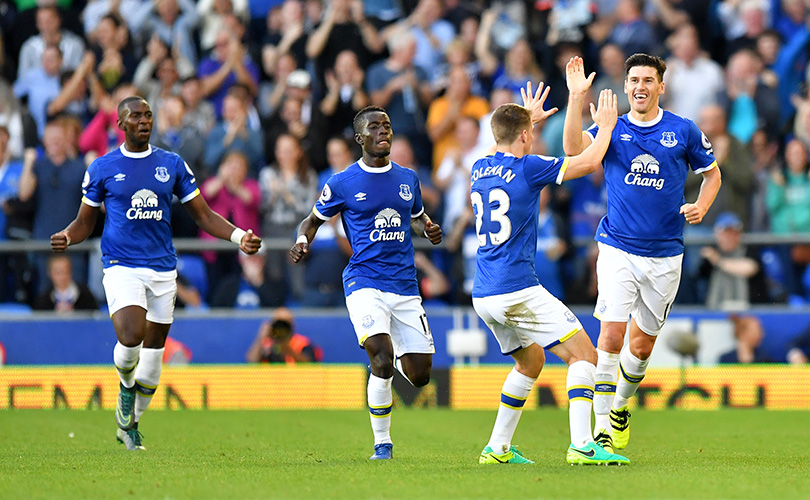
For a while, it looked like Mesut Ozil might have ruined Barry’s reputation for good: it was his laboured, doomed pursuit of the German en route to a 4-1 hiding at the 2010 World Cup that became the defining moment of yet another miserable tournament for England. The midfielder – whose move to nouveau riche Manchester City already had people questioning his elite-level credentials – was an obvious scapegoat.
Yet he has since proved integral to every team’s he’s played for. It's not coincidence that Aston Villa sunk into their present state of ongoing misery shortly after Barry left the club, nor that a good deal of Manchester City fans – whose side spent two seasons unable to control games while Barry was doing exactly that at Goodison Park – came to reflect on his sale as something of a blunder.
For four years he was a mainstay at Everton until his departured, aged 36, in 2017 – but not before he'd broken the all-time Premier League record for appearances (beating a presumably miffed Ryan Giggs whose old First Division matches had suddenly been wiped from memory). There followed one more unhappy year at West Brom in the top flight, culminating in the Baggies' relegation.
Barry was never quick nor dynamic, wasn’t one to split a defence with a pass, has never been a dribbler and very rarely shot. All the makings, then, of the classic unsung hero – a role he became accustomed to playing over the years. As with many slow players, age actually served to enhance rather than dwindle his ability: with no pace to lose, he had much the same skill set as his younger days but a deeper well of wisdom with which to apply it.
4. Ryan Giggs
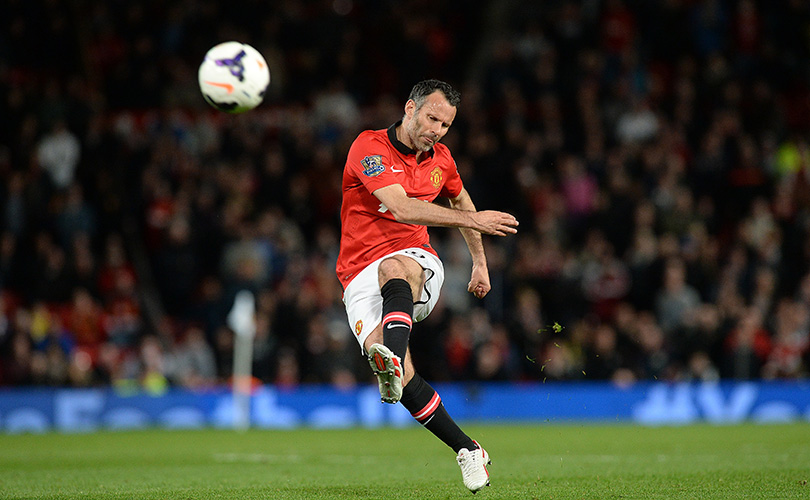
The ultimate endurer. While most ageing players tweak their game to adapt to a mellowing skill-set, Giggs reinvented his completely: the man who began his career as a lithe, tricky winger ended it by dictating games with economical precision from deep in midfield.
It’s almost a bygone age now, but it's easily forgotten that a man who became famous for his monk-like professionalism (he once claimed that having butter on his morning toast would make him feel “sluggish” at training) began life as a hard-partying wild child. In the early '90s, as Rupert Murdoch’s cash was flowing into England’s top flight, a young man called Ryan Giggs was at the vanguard of the age of megastar footballers.
At one point it seemed as though the Welshman might become one of the Premier League's first celebrities, but the days of necking 10 pints after training would soon be coming to an end. Sir Alex Ferguson's iron fist ensured that champagne was traded in for complex carbohydrates and nights out with Lee Sharpe were eschewed in favour of a few extra laps after training with Gary Neville.
Short-term suffering, but when Giggs announced his retirement aged 40 – major medal count: 22 – few could argue against the long-term gain it had brought.
5. Brad Friedel
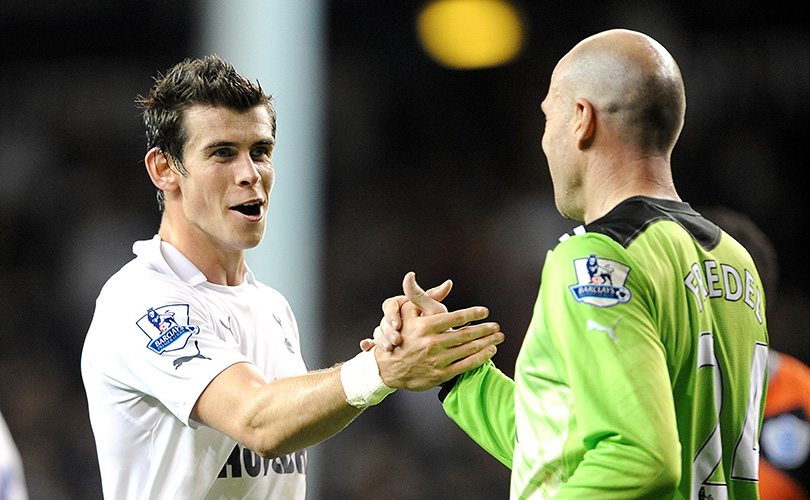
When you’re looking to freshen up a waning squad, a goalkeeper in his fifth decade on the planet isn’t the most obvious place to look – but that’s precisely what Harry Redkanpp and Tottenham did in the summer of 2011.
By the time that the next season had begun, the erratic Heurelho Gomes had been demoted to second choice, and Friedel formed the dependable base on which Spurs made the (seemingly) all-important ascent from fifth to fourth. He didn’t miss a minute in the league, taking him to a remarkable eight consecutive Premier League seasons – and 310 appearances – without having sat out a single game. It was the vindication deserved after a career of understated resplendence.
Part of a pleasing cluster of American goalkeepers to have found a home in England’s rebranded top tier, Friedel’s first few Premier League outings came as an inauspicious deputy to David James at Liverpool. He failed to convince the Anfield hierarchy, who dispensed with the spritely 29-year-old American in November 2000, opting instead to pile all their eggs into a basket marked ‘Sander Westerweld’ – a minor ‘what if’ moment, perhaps, in the modern history of English football.
Twelve years of near-impeccable form for Blackburn, Aston Villa and finally Spurs followed (during which Liverpool variously ploughed their way through Westerveld, Chris Kirkland, Scott Carson, Jerzy Dudek and Pepe Reina), before the baton was finally passed on to Hugo Lloris – a worthy recipient – in the 2012/13 campaign. Friedel can these days be found as head coach of MLS side New England Revolution – a role he partially attributes to attaining via the wisdom of Mauricio Pochettino.
6. Les Ferdinand
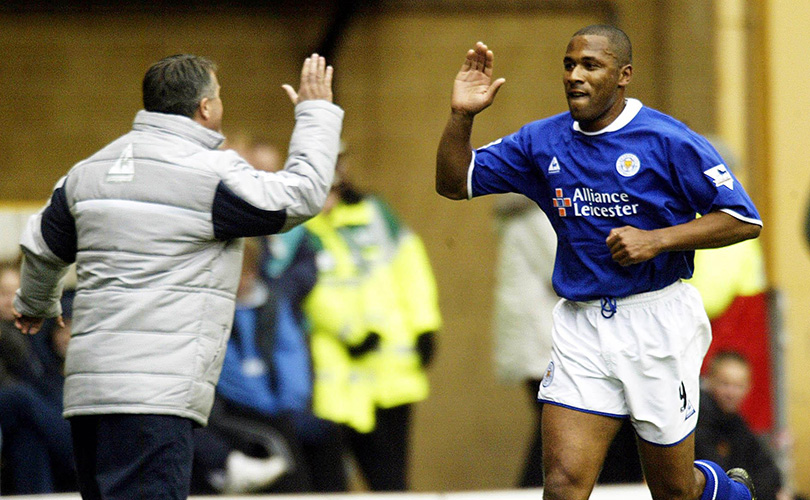
Almost certainly the best header of a ball that the Premier League has seen, Ferdinand combined the power of a small tank with the hang time of an NBA slam-dunker.
His finest hour came as the focal point of Kevin Keegan’s legendary Newcastle side that failed so gloriously to win the title in 1996, but as remarkable as that 25-goal campaign – or, indeed, the fact he’d averaged 20 a season for QPR over the previous three – is the longevity that followed it.
He was signed by Spurs as a 30-year-old but half a decade of bustling targetman play, unrelenting on-field commitment and, more broadly, an all-encompassing good-egg aura was more than enough to earn himself the status as one of the White Hart Lane crowd’s modern-era favourites. His impossibly broad, post-goal grin is as defining an image of Ferdinand as that towering leap.
There followed successive relegations with West Ham and Leicester (the latter coming despite his 12 goals in 29 games, aged 36), before the rare treat of six months with Sam Allardyce’s ever-enjoyable mid-noughties Bolton side, alongside the likes of Jay-Jay Okocha, Ivan Campo and Fernando Hierro. A emphatically old-school striker who seemed to both genuinely enjoy his football and take it completely seriously, Ferdinand is one of the most innately likeable players of the past two decades.
7. Gary Speed
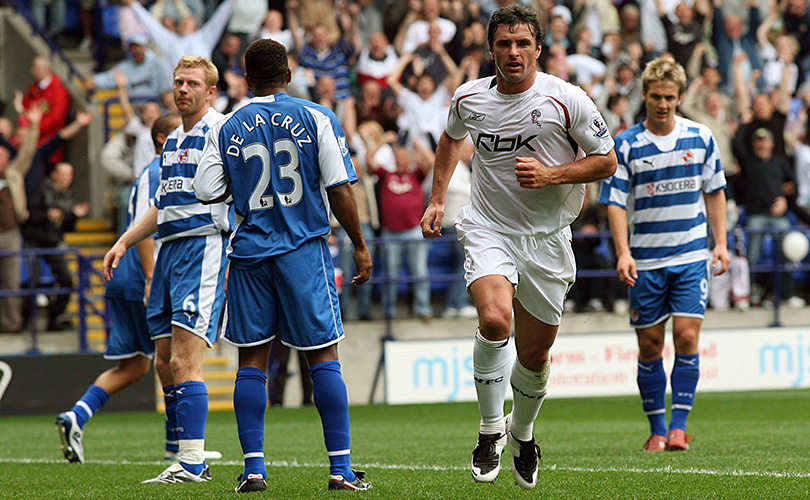
Another member of that league-winning Leeds midfield alongside McAllister and Strachan, Speed made his name as a rangy box-to-box midfielder before receding steadily back into a deeper string-pulling role as the years crept on.
Having played with distinction at Everton and Newcastle for the best part of a decade, he was nearing his 35th birthday when he joined Allardyce’s Bolton (yep, them again) in 2004. Yet that stint was arguably the most impressive of his career, his nous and vision in front of the back four providing a platform for a side that played with equal measures of craft and clout, and consistently punched above their weight.
After three-and-a-half years there, he still found time for two seasons at Sheffield United before moving on to coach Wales. His death in 2011, and the tributes that followed it, was a genuinely heartwrenching moment and a reminder both of sport’s insignificance and its power to unite.
